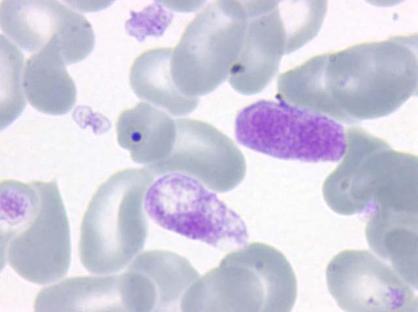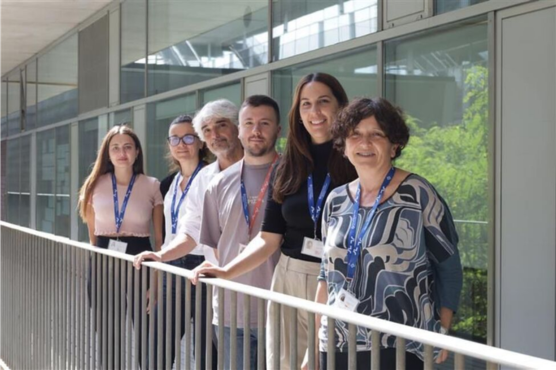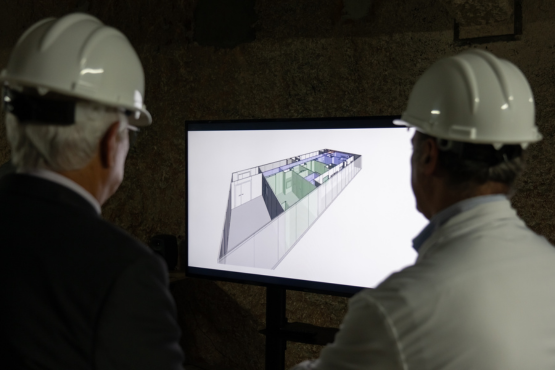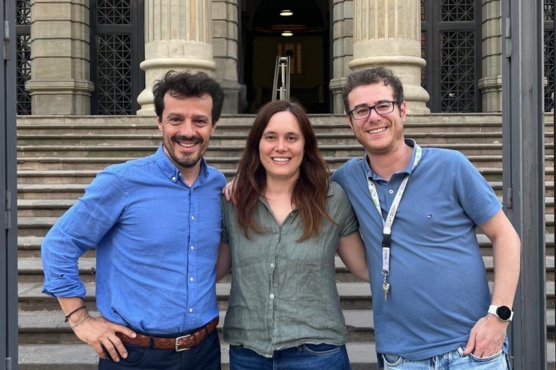The José Carreras Leukaemia Research Institute launches a scientific project on myelodysplastic syndromes
Dr. Francesc Solé, eminent biologist specialized in the cytogenetic diagnosis of haematological neoplasms, joins the José Carreras Leukaemia Research Institute this October to lead a new project focused on the study of Myelodysplastic Syndromes (MDS) and, at the same time, the Cytogenetic Research program of the Institute.
During the last years, Dr. Solé has directed the Molecular Cytogenetic Laboratory of the Pathology Service at Hospital del Mar in Barcelona, for the study of genetic rearrangements of various haematological malignancies and has conducted along with Dr. Lourdes Florensa the Translational Research on Haematological Neoplasms Group (GRETNHE) of the IMIM at the Biomedical Research Park of Barcelona. Notably, Dr. Francesc Solé presided from 1998 to 2004, the “Spanish Cooperative Group of Haematological Cytogenetic”, which belongs to the AEHH, and is a member since 2008 of the IWG-PM (“International Working Group of Prognostic in Myelodysplastic Syndromes) “.

Myelodysplastic syndromes
This type of haematological malignancy, which according to the OMS has an incidence of 3-5 cases for every 100,000 people every year, is particularly prevalent in the elderly population and a significant proportion of those affected may eventually develop leukaemia. “Our work focuses on the understanding of the genetic changes that have diagnostic and prognostic value. Today we know that the factor with the greatest impact on patient prognosis is the result of the study of the cytogenetic karyotype. The knowledge of the genetic changes of these patients will permit the knowledge of the pathogenic mechanisms of the disease and the design of targeted therapies based on the results, “says Dr. Solé.
The most frequent myelodysplastic syndromes are refractory anaemia with excess blasts (40% of cases), refractory cytopenia with multilineage dysplasia (30%), refractory cytopenia with unilineage dysplasia (10-20%) and refractory anaemia with ringed sideroblasts (3-11%).
José Carreras Leukaemia Research Institute
The José Carreras Leukaemia Research Institute was established in 2010 with the goal of promoting biomedical research and the development of personalized medicine for haematological malignancies and, especially, of leukaemia. Its main purpose is taking a step further in quality biomedical research against leukaemia and other haematological malignancies. The centre is born from a joint initiative between the Government of Catalonia and the José Carreras Foundation against Leukaemia, which aims to position the Institute as an international reference centre in the field of these diseases.
The Institute has two campuses, one located at the Campus Clinic, as part of the Barcelona Clinic Hospital and the Faculty of Medicine of the University of Barcelona and the other at the new building of the ICO campus/Germans Trias i Pujol, at the area of the Universitat Autónoma of Barcelona, in Badalona. The setup of a third campus at the Sant Pau Hospital is planned. In the following years, the José Carreras Foundation against Leukaemia will designate 14 million euros for the buildings and equipment of the IJC Campus. The Catalan government will allocate an annual budget to finance regular expenses for necessary structural functioning of the Institute. The Institute will also be funded through competitive funds (scholarships and grants, etc.) and patronage.







